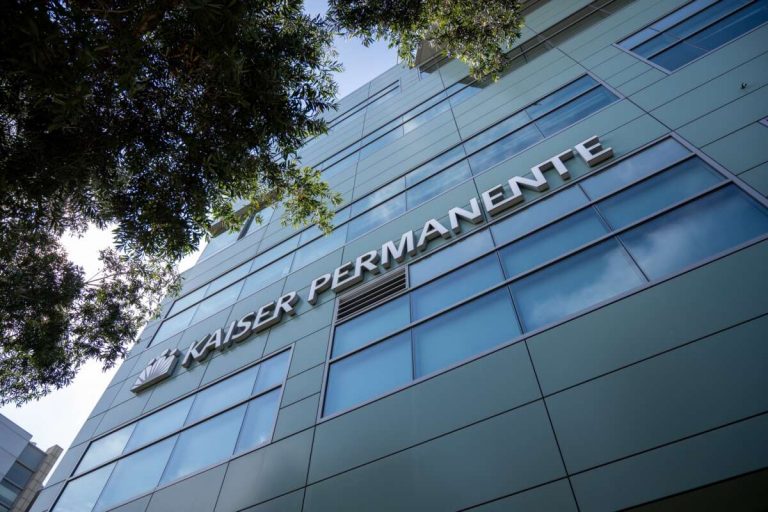23 Unions Plan To Strike Together If Kaiser Fails To Address Crises
“Our patients deserve the best, not mediocrity.”
This phrase has been emblazoned across graphics on the social media feeds of the Oregon Federation of Nurses and Health Professionals (OFNHP), an American Federation of Teachers affiliate, Local 5017. The roughly 6,000 health care professionals of the OFNHP are locked in a contract fight with their employer, Kaiser Permanente, the sprawling health care consortium. The mediocrity in question is not that of the staffers themselves; instead, it warns of the impending consequences for staff and patients alike of the workplace stressors to which Kaiser’s tens of thousands of doctors, nurses, technicians, and others are systematically subjected.















